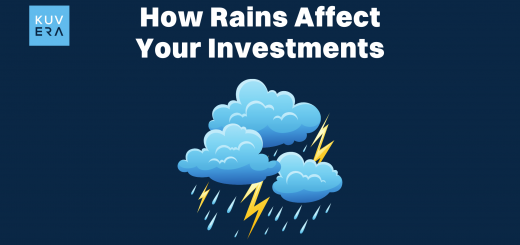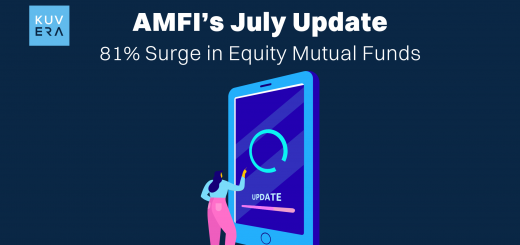It is said that passive investing with index funds might be better than investing in individual stocks. Does that apply to all types of stocks—smallcap, midcap and large cap?
Investing in smallcap stocks can be riskier than midcap or large cap or blue chip funds. This can be because of the lack of information, research, analytics and data available on these companies. However, this higher risk can be complemented by a higher return potential.
Passive funds India can be better avenues for investing in smallcap stocks, instead of directly investing in them due to professional management, and diversified risk.
There is much more to know about smallcap index funds in India. Let us learn about smallcap index funds, top smallcap index funds, benefits and risks involved in them below:
What Are Smallcap Index Funds?
Smallcap index funds in India are a type of mutual fund that passively track the performance of a specific small-cap stock market index, such as the Nifty Smallcap 50, Nifty Smallcap 100 or the S&P BSE Smallcap Index. These passive funds India types invest in a portfolio of stocks that closely mirrors the composition of the chosen index, aiming to replicate its returns. Small-cap stocks generally belong to companies with relatively smaller market capitalizations, indicating higher growth potential but also higher risk compared to their mid-cap and large-cap counterparts.
Investing in smallcap index funds offers a convenient and cost-effective way to gain diversified exposure to the small-cap segment of the Indian stock market. By passively tracking an index, these funds eliminate the need for active stock selection and portfolio management, resulting in lower expense ratios compared to actively managed funds. However, it is important to remember that small-cap stocks can be more volatile and susceptible to market fluctuations, making them suitable for investors with a long-term investment horizon and a higher risk tolerance.
Top Smallcap Index Funds In India
Here are top nine smallcap index passive funds India to look at:
Source: Accessed From Kuvera: 13/11/2024
What Are The Benefits Of Investing In Smallcap Index Funds?
Let us look more into the advantages of investing in smallcap index funds in India:
1. High Growth Potential
Small-cap companies are often dynamic and innovative, operating in niche markets or emerging sectors. This allows them to potentially grow at a faster rate than established large-cap companies. Think of it like investing in a sapling that has the potential to grow into a mighty tree. While there’s no guarantee, the possibility of significant expansion and increased profitability is higher with small-caps, which can translate into impressive returns over time. Imagine investing in a company like Infosys back when it was a small-cap! And, smallcap index funds can help you invest in a basket like these at a lower cost than direct stock investing.
2. Diversification
Smallcap index funds are passive funds India types that invest in a basket of stocks, offering you instant diversification. This spreads your risk across multiple companies and sectors, reducing the impact of any single stock’s poor performance on your overall investment. It is like not putting all your eggs in one basket. This diversification helps cushion your portfolio against market volatility and reduces the risk associated with investing in individual small-cap stocks.
3. Cost-Effectiveness
These funds typically have lower expense ratios compared to actively managed funds. This is because they are passive funds India type that passively track an index, eliminating the costs associated with active research, stock selection, and frequent trading. Lower expenses mean more of your money is invested and working towards your financial goals. Think of it as saving on commission fees while still getting the benefit of professional portfolio management.
4. Simplicity and Convenience
Investing in smallcap index funds is straightforward. You do not need to spend hours researching individual companies or timing the market. Simply choose a fund that tracks a reputable small-cap index, and you are automatically invested in a diversified portfolio of promising companies. It’s a hassle-free way to gain exposure to the small-cap market, especially for those who lack the time or expertise for active investing.
5. Riding the India Growth Story
India is a rapidly developing economy with a large and young population. This presents immense opportunities for small-cap companies to expand and thrive. By investing in smallcap index funds, you are essentially betting on the long-term growth prospects of the Indian economy. It can be like riding a wave of economic expansion, where the potential for high returns is amplified by the country’s overall growth trajectory.
However, always remember that higher potential returns come with higher risk. Small-cap stocks are inherently more volatile than large-cap stocks, and their performance can be significantly affected by market fluctuations. Therefore, it’s crucial to have a long-term investment horizon and a higher risk tolerance when considering smallcap index funds.
Risk Involved In Smallcap Index Funds Investing
While smallcap index funds offer attractive potential for growth, it is crucial to acknowledge the inherent risks involved.
- Firstly, small-cap companies can be generally more vulnerable to economic downturns and market volatility. Their smaller size and limited resources can make them less resilient to financial shocks compared to established large-cap companies. This increased volatility can lead to significant fluctuations in the value of your investment, especially in the short term. Imagine a small boat navigating a stormy sea – it can be more likely to be tossed around compared to a large ship. Similarly, your small-cap investments can experience greater swings in value during turbulent market conditions.
- Secondly, small-cap companies often operate in niche markets or emerging sectors, which can be susceptible to rapid changes and disruptions. A shift in consumer preferences, technological advancements, or regulatory changes can significantly impact the fortunes of these companies. Furthermore, small-cap companies may have limited financial resources and operational track records, making it harder to assess their long-term viability and growth prospects. This inherent uncertainty adds another layer of risk to small-cap investing.
Therefore, it is essential to approach this asset class with a cautious yet informed perspective, recognizing both its potential rewards and inherent risks.
Wrapping Up
Smallcap index funds are passive funds India type that present a compelling investment avenue for those seeking to capitalise on the growth potential of smaller companies in India. These funds offer a convenient and cost-effective way to gain diversified exposure to this dynamic segment of the market, potentially generating significant returns over the long term. By passively tracking a small-cap index, investors can benefit from the expertise of professional fund managers without the complexities of active stock selection. However, it is crucial to remember that small-cap stocks are inherently more volatile and susceptible to market fluctuations. Therefore, investing in smallcap index funds can be better with a long-term investment horizon and a higher risk appetite. As with any investment decision, it is essential to carefully consider your financial goals, risk appetite, and overall investment strategy before venturing into the exciting world of small-cap investing in India.
Interested in how we think about the markets?
Read more: Zen And The Art Of Investing
Watch here: Is UPI Killing the Toffee Business?












